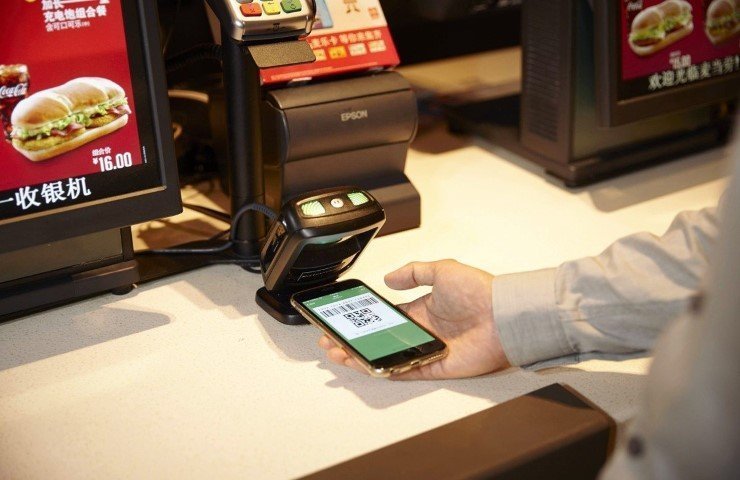Is WeChat Pay Contributing to the Death of Cash Transactions?

In the two years between being an intern in Qingdao and being a Branch Manager here, plenty has changed. But the most striking change is probably the massive popularisation of digital wallets, the two most popular being Alipay (zhīfùbao 支付宝) and WeChat Pay (wēixìnzhīfù 微信支付). Digital wallets have yet to catch on to the same extent in the UK. Apple Pay is the most notable example, however it definitely does not have the same momentum as WeChat Pay does.
So How Does it Work?
Put simply, you link your Chinese bank card to your WeChat account. From there, you can either scan a shop’s QR code (China loves a QR code!) or the cashier can scan your own personal bar code. From there, you input the amount you have to pay, tap in your WeChat Pay password and, just like magic, your money is transferred immediately.

I am not exaggerating when I say that WeChat pay is everywhere! From taxi drivers, fruit stalls and tiny noodle shops to supermarkets and car dealers, everyone now uses either WeChat Pay or Alipay, or even both! I have only come across one taxi driver who refused to accept it.
It solves the age old problem of how to split the bill. In Chinese, this is called AA制 (AA zhì). Before digital wallets were a thing, it was a hassle having the right change and juggling between you and your friends to make sure everyone paid their fair share. Now, in a very Chinese fashion, you can send your friends a digital 红包 (hóng bāo red packet) to pay them back for dinner.
Downsides
The only time I have found WeChat to be a pain was recently when my phone stopped working. On the first of every month, the packages of calls and data on Chinese phones refreshes. If you don’t have enough credit to refresh the package, your phone simply stops working until you top it up again. Becoming reliant on WeChat Pay was a nightmare in this situation, as I couldn’t connect to the internet to make any payments. To make matters worse, I only had 6RMB in my wallet! I couldn’t even get dinner, let alone buy a top up for my phone. I had to go home, connect to my home WiFi and top up my phone before I could access my WeChat Pay again.
So how does WeChat Pay affect the rest of China?
In just a few short years since their introduction into Chinese society, these digital wallets have become massively popular. According to a recent UN report, the value of payments made through WeChat pay has increased by a staggering eighty-five times, from RMB 0.1 trillion in 2012, to RMB 8.5 trillion in 2016. It is hardly surprising when WeChat is so integral to Chinese life. Most peoples’ social life online is conducted through WeChat, using the app to chat, organise events, find flatmates and even pay their taxes online!
A real upshot for the Chinese government as well is that the use of digital wallets has brought vast amounts of cash payments into easily recorded and traced digital transactions. This will potentially make it easier for tax authorities to keep track and collect taxes owed. In addition, it has the potential to bring more people into the economy. Those who are too far from banks, or are lacking the correct documentation to open a bank account where they live, can instead access the economy through their phone, taking advantage of China’s huge smartphone penetration.
The largest change on the street has been the near-extinction of cash. In restaurants, in cabs, in shops, I rarely see cash changing hands. Instead, people brandish smartphones and QR codes. It will be interesting to see how long this trend lasts.
For international payments, we always recommend using TransferWise. They’re cheaper than the banks, because they always use the real exchange rate – which you can see on Google – and charge a very small fee. They’re also safe and trusted by over 2 million people around the world. You can sign up here.





